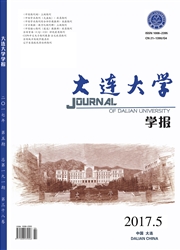

 中文摘要:
中文摘要:
上古"墙壁"概念域没有上位词。东汉时,"墙"发生了上位化演变,并新出现了复音上位词"墙壁"。唐代,"壁"也上位化了。唐宋时期,"壁"和"墙"都成为强势上位词。元明以后,"墙""壁"的功能逐渐分化,到清代,"墙"取得了强势上位词的地位,"壁"则语素化了。在考察"墙壁"概念域上位词历时演变的基础上,从韵律、语义、认知等角度探寻上位词产生的原因及"墙""壁"功能分化的原因。
 英文摘要:
英文摘要:
The concept of WALL does not contain super-ordinatesin ancient times. "QIANG"wassuper-ordinalized in East HanDynastyand "BI"became predominantsuper-ordinalized in Tang Dynasty, both becoming predominant super-ordinalized words in Tang and Song Dynasties. The function of Qiang and Bi gradually diverged after Yuan and Ming Dynasties resulting in that Qiangalone took the predominantsuperordinate and B/was morphemizedin Qing Dynasty. Based on the diachronic evolution of the super-ordinatein WALL, this paper explores the reasons whyQiangand Bibecomesuperordinalized and their functionsrespectively from prosodic, semantic and cognitive perspectives.
 同期刊论文项目
同期刊论文项目
 同项目期刊论文
同项目期刊论文
 期刊信息
期刊信息
